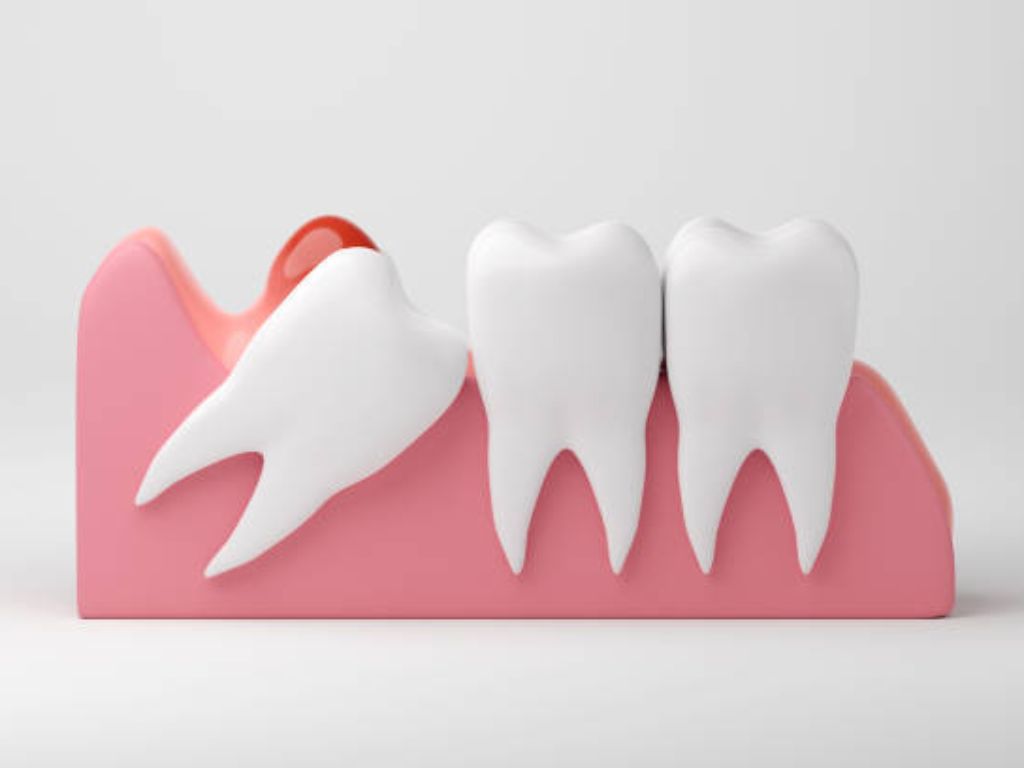Wisdom tooth removal is a common procedure that most of individuals experience during their late teens or early twenties. The recent discussions among dental professional have raised questions about the necessity of wisdom tooth extraction, expert opinions, the potential disadvantages, benefits of keeping wisdom teeth, long term side effects, the cost and recovery.
Understanding Wisdom Teeth
Wisdom teeth also known as third molars typically emerge between 17 to 25. For many people, these teeth can cause complications due to lack of space in the mouth. This can lead to impaction, pain, infection and alignment issues with other teeth. As a result, dental professional recommend their removal.
Necessity of Wisdom Tooth Extraction
The necessity of wisdom tooth extraction has been a topic of debate among dental experts. Many dentists advocated for removal of wisdom tooth as a preventive measure to avoid the future complications. However, recent studies suggest that if wisdom teeth are healthy, properly poisitioned and don’t create any issues so there might be no need for extraction.
Expert Opinions on Wisdom Teeth
Experts now knew the importance of individual assessments when considering wisdom tooth removal. Dentist recommend evaluating each case based on specific factors including the position of the teeth, age of the patient and any potential risks associated with keeping or removing the teeth. Many dental professionals agree that not all wisdom teeth require extraction, particularly if they are not causing any symptoms or several issues.
Disadvantages of Wisdom Tooth Removal
While wisdom tooth removal can prevent future dental issues, there are disadvantages to consider:
Surgical risks : In dental surgical procedure having a wisdom tooth carries a risks of such as bleeding infection and anesthesia complication.
Pain and discomfort : recovery from wisdom tooth removal can involve significant pain and discomfort requiring pain management.
Jaw Complications: In some cases the extraction may lead to jaw stiffness or other issues, especially if the procedure is complicated.
Impact on adjacent teeth : removing a wisdom tooth can sometimes affect the positions of nearby teeth that leading to misalignment or need for orthodontic treatment.
Benefits of Keeping Wisdom Teeth
For some individuals, keeping wisdom teeth may provide advantages, including:
Natural Function : wisdom teeth can contribute to chewing function and overall oral health if they are healthy and well positioned.
Prevents future issues : in case removing healthy wisdom teeth may leads to unnecessary complications while keeping them can maintain natural tooth structure.
Less surgical intervention : Avoiding surgery eliminates the associated risks and recovery time.

Long-Term Side Effects of Wisdom Tooth Extraction
While wisdom tooth removal is often straightforward, there can be long-term side effects, such as:
Altered Bite: Removing wisdom teeth may change teeth line up, which may lead to different bite.
Bone loss : the extraction can lead to bone resorption in the jaw, which can affect the structure and strength of jawbone over time.
Increased Risk of Gum Disease: Some studies suggests that individuals who have their wisdom teeth removed may be at a higher risk for gum disease.
Wisdom Tooth Extraction Cost
The cost of wisdom tooth removal can vary significantly based on several factors, including:
Location: Prices may be differ based on location and the dentist expertise.
Complexity of the Procedure: If the extraction is simple, costs may be lower. However impacted teeth or complicated extractions can increase expense.
Type of Anesthesia: The type of anesthesia used during the procedure can also affect the total cost.
On average wisdom tooth removal can range from $300 to $1000 per tooth, depends on these factors. Dental insurance may cover part of the cost, especially if the extraction is deemed necessary.
Recovery from Wisdom Tooth Removal
After having Your wisdom teeth removed, it’s important to follow dentist’s care instructions to manage pain and swelling. You should also eat soft foods to avoid hurting the area where the tooth was taken out.
Keep an eye out for any problems, like too much bleeding or signs of infection, and let your dentist know if you notice anything unusual. You may need to visit your dentist for follow-up appointments to make sure everything is healing well.
Myths About Wisdom Tooth Removal
Wisdom teeth always need removal
Fact : Not all wisdom teeth require extraction. If they are healthy, fully erupted, positioned correctly, and do not cause pain or dental issues, they can remain in place without problems.
Wisdom tooth removal is extremely painful
Fact: Modern dental techniques and Applying anesthesia make the procedure virtually pain free. Post surgery discomfort can be managed effectively with prescribed medications and proper care.
Everyone gets wisdom teeth
Fact: Not everyone develops wisdom teeth. Some people are born with fewer than four or none at all, which is entirely normal.
Wisdom teeth removal causes long-term health problems
Fact: Problems with wisdom teeth can occur at any age, but they are more commonly addressed in young adults when the roots are less developed and recovery is faster.
Wisdom teeth cause problems only when you’re older
Fact: Problems with wisdom teeth can occur at any age, but they are more commonly addressed in young adults when the roots are less developed and recovery is faster.
If they don’t hurt, they don’t need removal
Fact: Wisdom teeth can sometimes cause hidden issues like decay, cysts, or infections without noticeable symptoms. Routine dental X-rays can reveal such problems.
Wisdom Teeth Removal After 30
Many people experience wisdom tooth problems well into their 30’s or beyond while it is less common to have wisdom teeth removed at this age, it is still possible. Dental professional analyse individual’s situation carefully weighing the benefits and risks of extraction. Factors such as bone density and overall health can influence the decision.
Do They Break Your Jaw to Remove Wisdom Teeth?
A common misconception is that dentists musk break the jaw to remove wisdom teeth. In most cases this is not true. Dentists typically use advanced techniques and tools to extract wisdom teeth without damaging the jawbone. In complicated cases where teeth are deeply impacted or have abnormal roots, additional measures may be necessary. Patients should discuss their issues with their dentist to understand the situation.
The decision to remove wisdom teeth is not same for everyone. While there are valid reasons for extraction. If you’re experiencing discomfort or have questions about your wisdom teeth, it’s crucial to consult with a qualified dental professional who can provide personalized advice and treatment options.
FAQs
Not everyone needs to remove their wisdom teeth. If they are healthy, straight, and not causing problems, you may not need to take them out. It’s best to talk to your dentist about your situation.
You might need to remove your wisdom teeth if you have pain, swelling, or if they are pushing on your other teeth. If your dentist sees signs of infection or impaction, they may recommend removal.
Keeping wisdom teeth can sometimes lead to problems like tooth decay, gum disease, or pain. They can also become impacted, which can cause further dental issues.
The cost of removing wisdom teeth can vary. It usually ranges from $300 to $1,000 per tooth, depending on how complicated the extraction is and where you go for treatment.
After surgery, you can expect some pain and swelling. You should eat soft foods and follow your dentist’s care instructions. Recovery usually takes a few days to a week.
Yes, you can still have your wisdom teeth if you’re over 30. Your dentist will check your teeth and health to decide if removal is needed. Some people keep their wisdom teeth without issues at any age.
